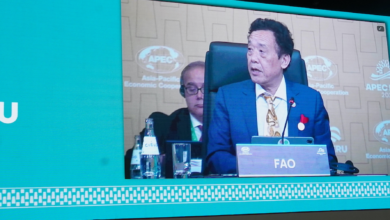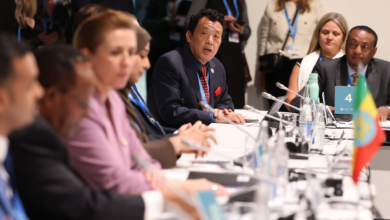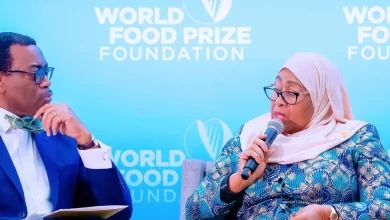Nigeria To Begin Rice Exportation In 2022 – Minister

Minister of agriculture and rural development, Muhammad Sabo Nanono
The minister of agriculture and rural development, Muhammad Sabo Nanono, yesterday disclosed that the country will begin exportation of its locally produced rice in 2022.
Nanono, who made the disclosure during a press conference after a working visit of the Nestle Nigeria Public Limited Company (PLC) Office in Lagos on Tuesday, noted that Nigeria’s current land border closure had resulted in increased outputs by many rice milling plants that were operating below capacities before the closure.
“If we maintain the momentum in the next two years, we may export rice to other countries
“I was worried in terms of the production of rice, but what I have found out is that most rice producers have stocked rice for the next six months.
“This means that before the stock is finished, dry season rice will be harvested, and before that finishes, rainy season will come back”, Nanono said.
He stated that despite the annual three months- November to January when rice is not planted, the nine-month cycle is enough for Nigeria to process sufficient rice for local consumption and exportation.
“As at today, we have 11 rice milling plants with the capacity to produce from 180 tonnes to 350 tonnes of rice per day
“In a few months, another mill with a capacity to produce 400 tonnes of rice per day is going to be opened, with another upcoming 34 smaller mills; then, we have clusters in different areas”, Nanono said.
He, however, added that the local rice farmers were fully engaged and used between 200 farmlands and 300 farmlands directly.
It would be recalled that a recent World Bank study indicates “Africa’s rising food import bill poses a burden on the external balances and signifies an important missed opportunity for accelerating poverty reduction through food import substitution.”
Wheat and rice hold especially significant potential for income growth and poverty reduction. The high volume of cheap rice imports moving through Benin from outside the region threatens this potential in Nigeria, and this will become an issue far beyond Nigeria as countries across Africa ease restrictions on the movement of goods, services, and people.
Culled from Daily Independent





